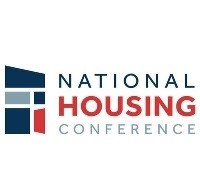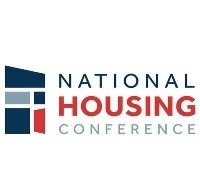SAIPAN – August 31, 2015 – (RealEstateRama) — Federal Emergency Management Agency (FEMA) inspectors continue to examine property damage as part of the FEMA process that brings assistance to Saipan, CNMI residents who have registered with FEMA in the wake of Typhoon Soudelor.
Applicants will receive their inspections in the order that they were received as long as the survivors are reachable when the inspector contacts them to schedule the inspection. If their phone is not working or the inspectors cannot get a hold of them, this will delay their inspection date. Inspectors will attempt contact by phone on at least three separate occasions and, if they are unable to reach the applicants by phone, will attempt to physically locate the damaged dwelling to see if they can contact the applicants in person.
When inspectors visit the dwelling, and if no one is there to receive the inspection, they will leave a “Sorry I Missed You” letter which includes the inspector’s contact phone number on it and a number to call if the inspection is returned after the three unsuccessful attempts. FEMA advises survivors to assist themselves in the process by ensuring they have given FEMA a working phone number where they can be reached, have their ownership/occupancy verification form ready to show to the inspectors when they arrive, and provide clear directions to their houses, or to landmarks the inspectors can work off of. Applicants should also make sure their town is included in the FEMA registration when providing the damaged dwelling’s physical address.
“Inspectors are in the field to confirm your loss,” said Federal Coordinating Officer Stephen M. DeBlasio Sr., of FEMA. “We encourage residents with property damage to register quickly with FEMA and be ready to welcome our inspectors who will help speed your claim process.”
Before an inspector is assigned to an applicant, homeowners and renters with uninsured or underinsured disaster-related damage must register with FEMA. Survivors can register by phone at 1-800-621-FEMA (3362) or TTY 1-800-462-7585 for survivors with hearing disabilities. Online registration is also available 24/7 at www.DisasterAssistance.gov. Multilingual assistance is available.
Once applicants have registered:
An inspector will call to schedule an appointment to visit the damaged property. This is necessary to confirm eligibility for FEMA assistance for disaster-related losses. Applicants are asked to be at home when inspectors visit.
The inspector will evaluate the extent of damage to an applicant’s house or apartment and determine whether it is in a livable condition by checking the building and its systems. Damage to major appliances — washer, dryer, furnace, refrigerator, stove — will be assessed. Inspectors should be informed about any important losses such as clothing, medical equipment, tools needed for a trade and educational materials.
Homeowners and renters with private septic systems and wells should point out these facilities. FEMA assistance may be available to repair or replace damaged systems.
Applicants can help speed the inspection by having documents — mortgage payment, utility receipt, lease, etc. — ready to show proof of ownership or occupancy to the inspector. Having insurance papers available if possible is also helpful.
FEMA inspectors have agency photo identification and will never charge a fee for any service. If you suspect fraud from any inspector or other person offering assistance, report them to the nearest law enforcement agency and to the FEMA toll-free Disaster Fraud Hotline at 866-720-5721.
When a FEMA Housing Inspector visits your home, someone 18 years of age or older who lived in the household prior to the disaster must be present for the scheduled appointment. The inspector will ask to see:
Photo identification.
Proof of ownership/occupancy of damaged residence (structural insurance, tax bill, mortgage payment book/utility bill).
Insurance documents: home and/or auto (structural insurance/auto declaration sheet).
List of household occupants living in residence at time of disaster.
All disaster-related damages to both real and personal property.
If you are unable to provide traditional proof of ownership/occupancy (such as tax bill, mortgage payment books, deed, title, insurance), you can get a signed letter by a local precinct representative to validate the physical location of a home/dwelling (a P.O. Box address is not sufficient). Ownership/Occupancy Verification Letters can be picked up at:
Fire Stations
Kagman
Garapan
Susupe
San Roque
Koblerville
The Disaster Recovery Center located at the Multi-Purpose Center in Susupe
Shelters located at:
Kagman Community Center
Tanapag Headstart
Saipan Aging Center
Once filled out, please take the form to your local fire station. They will provide you with a contact number to reach your local precinct representative to validate.
If you have been displaced and need transportation to and from the housing inspection, you can contact the Commonwealth Office of Transit Authority at 670-237-8000 to schedule transportation.
Once the inspection process is complete, your case will be reviewed by FEMA and you will receive a letter or email outlining the decision about your claim. If you qualify for FEMA assistance, you will receive a check or direct deposit, and a separate letter explaining how you may use the money. Homeowners may use FEMA housing repair grants for essential repairs to make their residence safe, secure and livable. These grants are for repairs necessary to make primary rooms habitable. FEMA assistance may not make you whole again, but it can start you on the road to recovery.
FEMA’s mission is to support our citizens and first responders to ensure that as a nation we work together to build, sustain, and improve our capability to prepare for, protect against, respond to, recover from, and mitigate all hazards

















